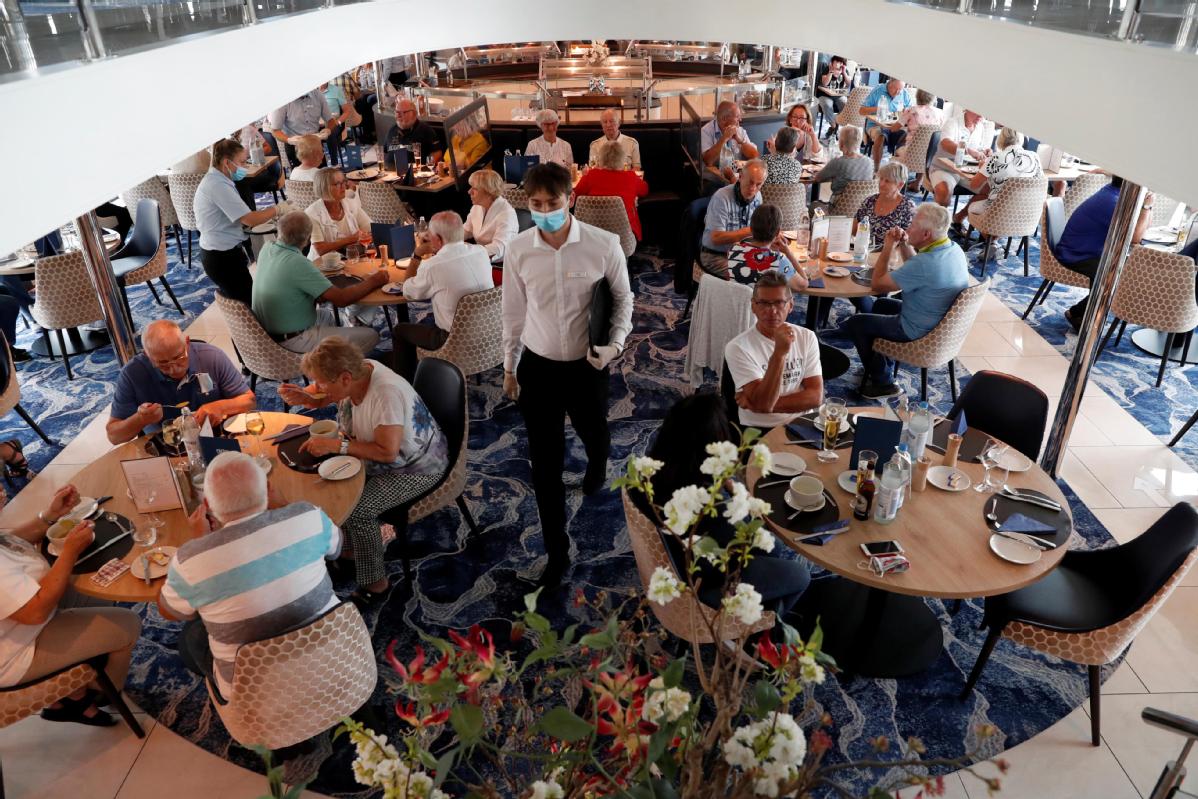EU raises its guard against pandemic


Widespread alerts
In addition to Belgium, many other EU member countries have witnessed a resurgence of cases, with the highest numbers on Saturday reported in Spain (2,255), France (931) and Germany (781).
On July 20, France made wearing face masks mandatory in all enclosed public places nationwide. Violators face a fine of 135 euros ($151).
On Wednesday, La Rochelle, a popular tourist resort in southwest France, required masks to be worn on streets in the city center.
Unlike in the United States, wearing masks is not a divisive political issue in France and other EU countries. However, people continue to take the issue less seriously than those in some East Asian nations who experienced the outbreak of severe acute respiratory syndrome, or SARS, in 2003.
On Friday, French Prime Minister Jean Castex said on-the-spot COVID-19 tests would be required for travelers arriving from 16 countries where the novel coronavirus is spreading rapidly. However, he did not name the nations.
Castex, who took office on July 3, said travelers from countries where the infection rate is regarded as high will be subject to compulsory testing on arrival at French airports and seaports. Those who test positive will be quarantined.
Media reports quoted him warning the French public against traveling to the Catalonia region of Spain, where the number of cases has risen rapidly.
Castex, who in April was appointed coordinator for phasing out lockdown measures in France, said the country was in discussions with Spain about reducing traffic flow between the two nations.
France has the most deaths from COVID-19 in the EU and the sixth-highest number in the world, trailing the US, Brazil, the United Kingdom, Mexico and India. By Saturday, 30,078 deaths had been reported from the disease in France.
In Spain, about 8,000 cases were reported in Catalonia in the two weeks before July 23, about half the country's total new infections.
On July 17, the Catalan regional government told some 4 million people, including all residents in Barcelona, to stay home and to avoid gatherings of more than 10 people. Bars and restaurants were ordered to reduce capacity levels.
Next day, police in Barcelona sealed access to many areas of the city's beaches after crowds decided to ignore the stay-home order and go sunbathing.
On Friday, the Catalan government announced that late-night bars and nightclubs would be closed for 15 days, starting the following day.
Jeffrey Lazarus, an infectious diseases expert at the Barcelona Institute for Global Health, told the media the real problem is not that people aren't wearing masks.























